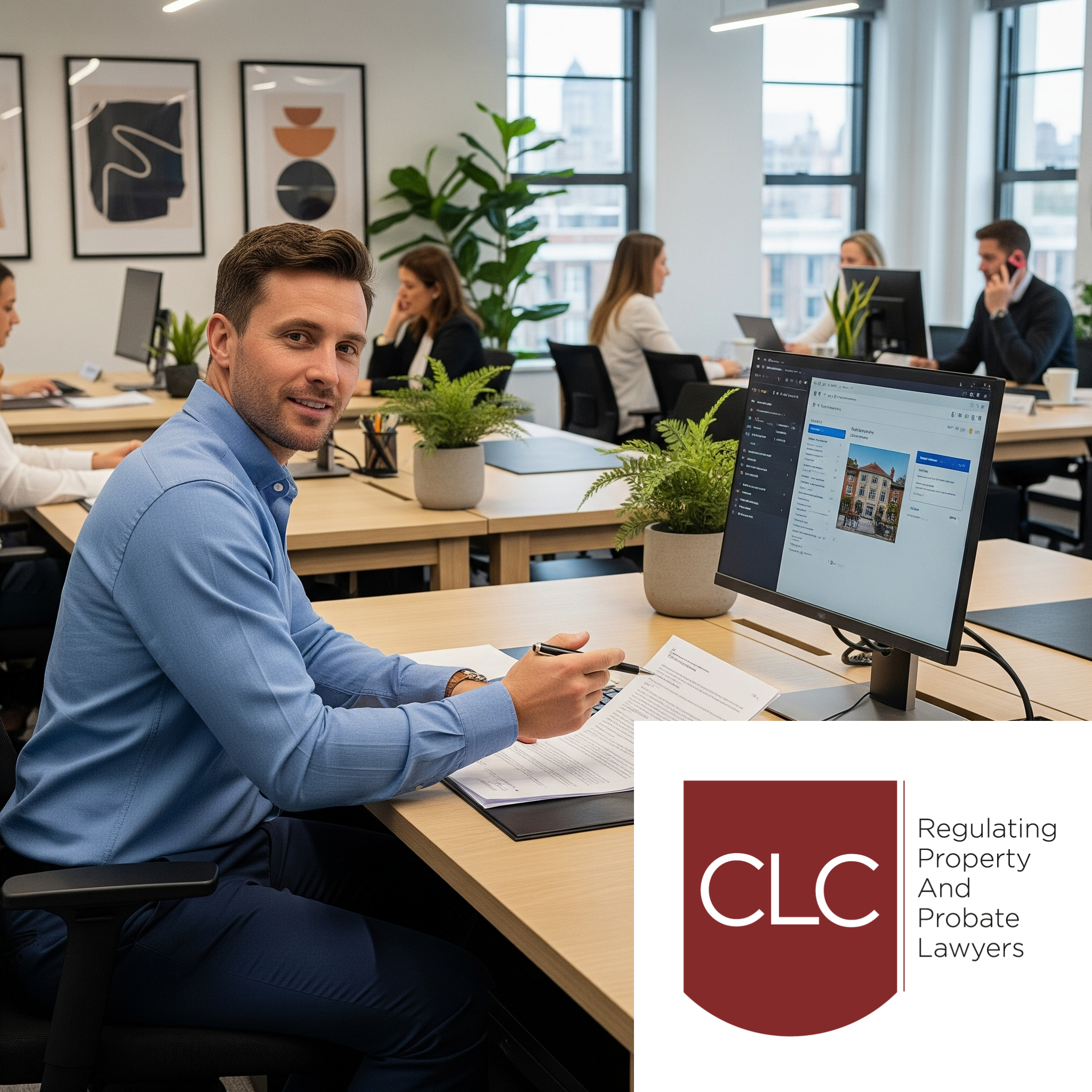Your Guide to CLC License Requirements
As a Licensed Conveyancer, you're already on the efficient CLC framework – discover how straightforward it is to add valuable probate expertise and serve clients more comprehensively.
Published: 24 May 2025
Are you studying for your Level 4 and Level 6 Diplomas in Conveyancing or Probate? Aspiring to become a Licensed Conveyancer or Licensed Probate Practitioner in England and Wales? This student guide to the CLC licensing process is designed to demystify the Council for Licensed Conveyancers application and outline the crucial CLC license requirements you'll need to meet.
Successfully navigating the CLC licensing process is your gateway to a rewarding career in property or probate law. The CLC, as your regulator, ensures that all licensed professionals are "fit and proper" to practice. Let's delve into the essential steps and what checks does CLC do for a license?

Understanding the Core CLC License Requirements
To successfully apply for your CLC Conveyancing license (or Probate license), you must satisfy two primary criteria:
- Academic Qualification & Practical Training:
- Successful Completion of CLC Diplomas: You must provide official evidence of passing the SQA Level 4 and Level 6 Diplomas in Conveyancing and/or Probate Law and Practice. These form the bedrock of your legal knowledge.
- 1,200 Hours of Practical Experience: A critical CLC license requirement is the accumulation of a minimum of 1,200 hours of qualifying work experience. This practical training must be gained under the direct supervision of an "Authorised Person" (such as a Licensed Conveyancer, Solicitor, or FCILEx Practitioner) within a qualifying employment setting. You'll formally evidence this through a Statement of Practical Experience (SoPE).
- Important Note: Your SoPE cannot be signed off by your employer until after your SQA Level 6 Certificate has been issued.
- "Fit and Proper Person" Assessment:
- This comprehensive evaluation determines your suitability to practice as a CLC lawyer, assessing your integrity and ethical standing. The CLC checks your background through a screening agent.
What Checks Does CLC Do for a License? A Detailed Look at the "Fit and Proper" Assessment
When considering what checks does CLC do for a license?, understand that the process is thorough and designed to protect the public. The CLC checks will include:
- Identity Verification: Confirming your legal identity.
- Financial Background Checks: This includes scrutinising your financial history for any County Court Judgments (CCJs), Individual Voluntary Arrangements (IVAs), Company Voluntary Arrangements (CVAs), or bankruptcy. Undisclosed or unresolved financial issues can be significant.
- Criminal Record Checks: A Standard Criminal Records Check and a Disclosure and Barring Service (DBS) check are mandatory. You'll need to provide consent for these checks to proceed.
- Regulatory and Disciplinary History: Any past involvement in regulatory investigations, allegations, or disciplinary actions from previous employers or professional bodies will be thoroughly reviewed.
- Sanctions Screening: Checks against national and international sanctions lists.
Key Points Regarding Adverse Information & Disclosure:
- Transparency is Paramount: If adverse information is identified during the CLC checks, such as past convictions or financial sanctions, the CLC will request further documentation (e.g., official DBS certificates, court findings, supervisor reports).
- Grounds for Refusal: The CLC will generally refuse a license if there are convictions for dishonesty, attempts to deceive regulatory bodies, repeated failures in duty to the court (especially with unresolved CCJs), or, critically, if you fail to disclose relevant prior involvement in criminal, employment, regulatory, or financial issues.
- Material Omissions: Any failure to provide satisfactory evidence for your "fit and proper" status or your qualifications/experience will be considered a material omission, leading to your application being deemed incomplete and not processed further.
Your CLC License Application Guide: The Process Unveiled
Once you've met the preliminary CLC license requirements, the application proceeds as follows:
- Request Application Form: Begin by requesting your digital application form via the CLC website.
- Digital Submission via DocuSign: The Council for Licensed Conveyancers application is managed securely through DocuSign. You'll receive an email with a unique link to access and complete your form.
- Certify Your Documents: Ensure all uploaded certificates and transcripts are fully certified in line with CLC guidelines. Incorrect certification can cause delays.
- Submission Timeline: You have 28 calendar days from receiving the DocuSign link to complete and submit your application. After this period, the link expires, requiring you to start a new request.
- Application and Screening Fees: Expect non-refundable application and screening fees. Additional charges may apply if your application has adverse findings that require extended assessment.
- Screening Initiation: Giant Group will contact you to commence the screening. You'll need to provide certified photo ID (passport is mandatory for your legal name on the license) and two proofs of residency.
- Processing Time: The CLC aims to process most applications within 42 calendar days from fee receipt. Applications with adverse findings may take up to 84 calendar days. While the CLC won't provide routine updates, a lack of contact generally means your application is progressing.
Licensing Decisions & Appeals
The CLC's licensing decisions can result in:
- Approval: License granted.
- "Minded to Approve": Approval likely, subject to minor conditions.
- "Minded to Refuse": The CLC is considering refusal. You'll be notified of the grounds and given one month to respond or provide further information.
- Refusal to Grant a License: Formal refusal with reasons provided.
Appealing a Refusal:
If your license is refused, you have the right to appeal to the Adjudication Panel within one month of receiving the refusal notice. The Adjudication Panel's decision is final.
Practical Experience CheckerLevel 6 Probate Diploma
More related posts

Double Your Expertise:
Dual Qualify as a Licensed Conveyancer & Probate Practitioner

From Student to Specialist: Your Career Path After Conveyancing











